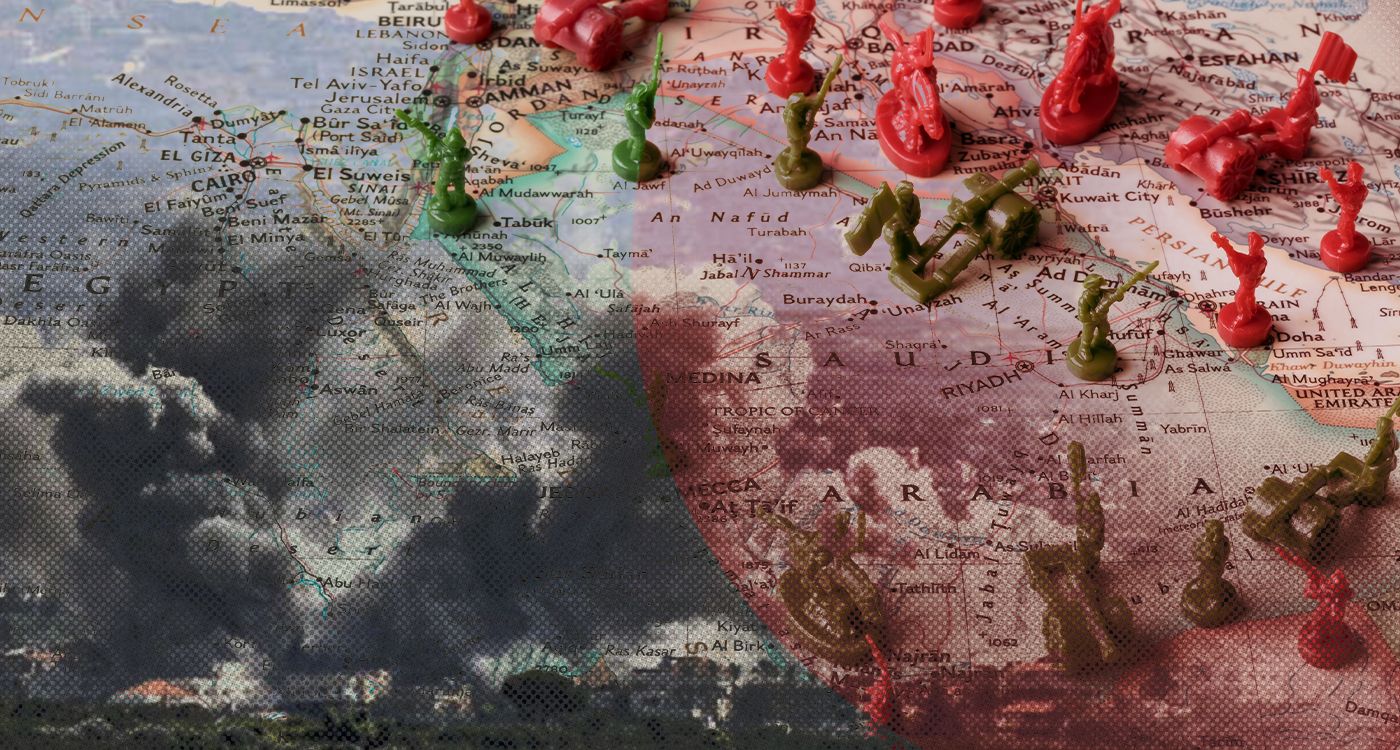- Home
- Middle East
- War Equivocations

©Ici Beyrouth
The Israeli-Iranian wars continue on an unhindered course, and the likelihood of an imminent resolution is minimal. There is little chance for a negotiated outcome unless the Iranian proxies are defeated and the power equations are irreversibly changed. The truce proposals broadcasted by the United States, France, the European Union and the United Nations have turned awry since they are predicated on vague premises, wishful thinking, intentional distortions of security facts, vindictive behavior and anti-Semitic concealments. The moralistic overtones have failed to sublate the raw political facts and address the real issues at stake. The annihilation of both Hamas and Hezbollah and the destruction of the Iranian operational platforms throughout the Middle East are prejudicial to truce brokering and any negotiated settlement of the pending strategic and national issues in question. The survival of the terror proxies, under whichever form, is inimical to any process of political normalization and a spurious claim to truthful peace-making.
The death of Yahya Sinwar has not brought any new movement toward peace and shows little indication that it will. The succeeding leadership seems determined to pursue the destructive course with no regard to the human and ecological devastations and the likelihood of a negotiated settlement. Israel has no other choice but to fight its way to military victory despite the hazards surrounding the fate of the surviving hostages. The same scenario holds in the case of Hezbollah, which is determined to battle against all odds while overlooking the disastrous outcomes of its military engagements. Tragically enough, both terrorist movements are following the same nihilistic script, which depicts the ideological and mental mindset congenial to these groups. Mediation and negotiated conflict resolution are not part of their political wherewithals and worldviews. The truce proposals were impractical since their moral inspiration was poorly connected to the underlying Iranian power politics and their subtexts. The instrumentalization of human shields and the deliberate search for political victimization are not incidental but lie at the core of these groups' worldviews and political objectives.
The Paris-held conference to assist Lebanon is based on equivocations that need to be dispelled if it were to overcome its self-defeating operational premises. The rushed scenario has yielded multiple contradictions regarding its projected goals. The inappropriate characterization of the Israeli military intervention of barbarism by President Macron is based on misrepresentations regarding the nature of military targets. The systematic militarization of the urban and rural landscapes and the undifferentiated security configurations are the source of the military devastations and their deleterious consequences. The Israeli counteroffensive cannot overlook the nature of the Lebanese strategic landscape while plotting its operations. The criminal strategizing of Hezbollah and its predicates are to be incriminated in the first place for any deconfliction efforts.
Otherwise, this international conference should have been post-dated and framed by the UN Chapter VII provisions, the election of a president and the formation of a cabinet of national salvation to oversee the transition to peace: the comprehensive negotiation with Israel over the overhauling of UN security resolutions (Armistice 1949, 1701, 1559, 1680), the post-war geopolitical reconfigurations and the management of relief policies. The modus operandi of this conference betrays a counterproductive political agenda that rehabilitates Hezbollah, redeems the corrupt political oligarchy, and perpetuates the prevarications and the political cleavages that have undermined civil peace in this country.
The state of strategic and political obfuscations in both Lebanon and Gaza is shrouded in political uncertainty, mainly caused by the predicament of the Iranian regime, which masterminds the regional instability. The targeted destruction of its proxies (Hezbollah, Hamas, Houthis, a- Hashd al-Shaabi, the Alawite regime) intertwines with the annihilation of its nuclear infrastructure and the energizing of the civil society actors and the various political oppositions. While fighting for its survival, Israel has successfully put on track a transformative military and political dynamic that is likely to change the geostrategic and geopolitical configurations throughout various political spectrums. We have to reread the unfolding military and political events from a larger political perspective thatthat goes beyond immediate circumstances and embraces the broader political and strategic dynamics at work.
Read more




Comments